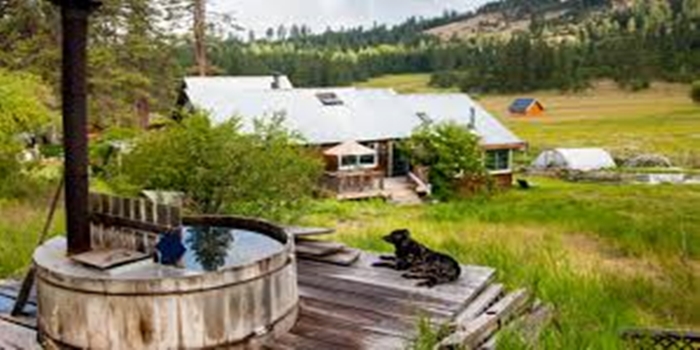In this article, we discussed the meaning of agritourism, farm stays, we also outlined those things you should know before booking a farm stay.
Definition
Agritourism is a commercial enterprise that connects tourism with agricultural production and processing to educate and entertain visitors while generating income for the farm or farm. Farm stays are a type of agritourism that involves offering overnight hospitality to guests on a farm.
Agritourism can include a variety of activities, such as:
Olive harvesting
Cheesemaking
Beekeeping
Visiting a farmers’ market
Drinking apple cider in an orchard
Foraging
Fruit picking
Agritourism can help reduce rural poverty by allowing farmers and agricultural workers to diversify their business. It can also bring into line with travelers’ desires to get back to nature, embrace the outdoors, and participate in hands-on activities.
A farm stay (or farm stay) is any type of accommodation on a working farm. Some farm stays may be interactive. Some are family-focused and offer children opportunities to feed animals, collect eggs and learn how a farm functions. Others do not allow children.
Farm stays can be described as agritourism (farmer opening their farm to tourists for any reason, including farm stands and u-pick), ecotourism (Responsible travel to natural areas that conserves the environment and improves the well-being of local people), and geotourism (tourism that sustains or enhances it.
Things you should know before booking a farm stay
Here are tips to prepare you for your farm adventure.
Bring appropriate clothing and gear
It is very important to bringing the right clothing and shoes. A pair of water resistant and windproof pants are a must. Know that your surroundings will be mostly rural, with lots of land and friendly animals that might want to greet you. Those same animals will eliminate in pastures, so designer shoes and heels are a no-no.
Bringing a raincoat is also a good idea in case the weather doesn’t cooperate.
Ask your host about food and meal prep
Depending on where you’re staying, meals may be provided for guests or you might have to bring your own food. Check out a farm-to-table cookbook for inspiration so you can use any produce and products the farm has to offer guests.
Ask your hosts if there’s a full kitchen where you can prepare your meals. Many farms have a garden where you can pick vegetables and ripe fruits to eat and enjoy. Some farms even offer fresh laid eggs to include in your breakfast.
What types of activities are available?
Working farms are busy settings, and not places set up for entertainment. In other words, don’t expect Disneyland and live shows. Most farmers will be actively tending to animals and chores. Before you book your stay, make sure to know the level of activity the farm allows guests. Depending on the type and size of the farm, some hosts might encourage visitors to be more involved while others might not. Because of the backdrop, there are usually many places to meander outdoors.
Follow safety precautions
Your farm stay will include exposure to large and small machinery as well as all different types of animals. Whether you’re traveling by yourself or with small children, learn and follow the rules and restrictions. For instance, on one of my trips to a farm, it was important to close and latch all the gates whenever I passed through a field because the animals could run away and get injured if they escaped.
Which season is best?
Planning your trip around the seasons is important. Spring and summers are the best times to go because as the weather warms up, there will be growth and more activity on properties. Summer is when the farm is at its crest while fall draws abundant crops such as winter crushes, pumpkins, carrots, beets and potatoes. Winter is an ideal time to visit if you want quiet time and less activity.
Ask questions
Even if you’ve already done a farm visit, you’ll still do yourself a favor by asking your hosts lots of questions. Good questions to ask your host are if there’s heat, air-conditioning, and internet connection. Ask if their animals are friendly and if you can feed them. Ask them if they have a list of things you might need to bring. I have found hosts are often eager to help and offer suggestions because they’re excited to share this experience with others.
Conclusion
Agritourism is a travel trend on the rise, with an increasing number farms and wineries offering guests opportunities to experience life on a farm. From gathering freshly laid eggs to doing other chores such as feeding livestock, it’s not your typical vacation. While each experience will vary from property to property, agritourism offers an opportunity to make deeper connections to nature and bond with the farmers who supply the nation’s food supply. Whether you’re a solo traveler, a couple, or a family with kids, the experience is a rich one that can show guests where their food and wine comes from.

